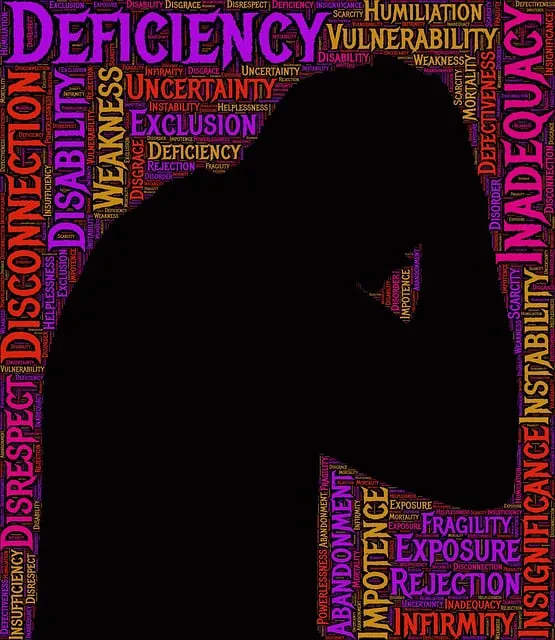The Louisville Kaiser Permanente Mental Health Appointment Center employs a holistic Resilience, Flexibility, and Mindfulness (RFM) approach, utilizing exercises from the Mental Wellness Podcast Series and Mind Over Matter Principles. This strategy builds resilience among patients by teaching them to proactively manage their mental health. Through Resilience Building Exercises (RBFEs), including customized workshops and programs, the center equips individuals with tools for navigating life's challenges. Success is measured through both quantitative and qualitative evaluations, ensuring continuous improvement and tailored program relevance.
At the Louisville Kaiser Permanente Mental Health Appointment Center, we’ve embraced Revolutionary resilience-focused practices (RFM) to enhance patient well-being. This article explores how RFM, a powerful tool for fostering mental fortitude, is integrated into our services. We’ll guide you through a comprehensive step-by-step implementation process and delve into strategies for measuring success and continuous improvement, showcasing the positive impact on patient outcomes at Louisville Kaiser Permanente.
- Understanding RFM and its Role at Louisville Kaiser Permanente Mental Health Appointment Center
- Implementing Resilience Building Exercises: A Step-by-Step Guide
- Measuring Success and Continuous Improvement Strategies for RFM Programs
Understanding RFM and its Role at Louisville Kaiser Permanente Mental Health Appointment Center

At the Louisville Kaiser Permanente Mental Health Appointment Center, RFM (Resilience, Flexibility, and Mindfulness) exercises play a pivotal role in enhancing patient care and mental wellness. This holistic approach integrates various strategies from the Mental Wellness Podcast Series Production and Mind Over Matter Principles, fostering an environment that promotes resilience among patients. By incorporating RFM techniques, the center aims to equip individuals with the tools needed to navigate life’s challenges effectively.
The implementation of these exercises goes beyond mere therapy; it empowers patients to assess and manage their mental health proactively. For instance, risk assessment, as explored in the Risk Assessment for Mental Health Professionals framework, becomes a collaborative process where patients learn to identify potential triggers and implement mindfulness practices to mitigate risks. This proactive mindset is pivotal in maintaining mental wellness, making RFM exercises a game-changer in the Louisville Kaiser Permanente Mental Health Appointment Center’s service offerings.
Implementing Resilience Building Exercises: A Step-by-Step Guide

Implementing Resilience Building Exercises (RBFEs) can be a transformative process for individuals and communities alike, especially within settings like Louisville Kaiser Permanente’s mental health appointment center. Here’s a step-by-step guide to ensure effective integration:
1. Assess Needs and Goals: Begin by understanding the specific needs of your target audience. Are they primarily stressed employees, vulnerable youth, or a mix? Define achievable goals for RBFEs, aligning them with the overall mental health education programs design. For instance, improving stress management skills or fostering emotional regulation.
2. Design Customized Programs: Based on the assessment, tailor RBFEs to meet diverse needs. Incorporate evidence-based practices such as Mindfulness Meditation, which has been shown to reduce anxiety and enhance focus. Louisville Kaiser Permanente could offer a range of programs, from short workshops on stress reduction techniques to longer community outreach program implementations that empower individuals with coping strategies for life’s challenges.
3. Engage Stakeholders: Collaborate with experts in mental health, educators, and community leaders to co-create engaging content. Their insights ensure cultural sensitivity and relevance. Regular communication channels should be established to keep all stakeholders informed about the program’s progress and gather feedback.
4. Pilot and Evaluate: Start with a pilot program to test the effectiveness of RBFEs in your specific setting. Collect qualitative and quantitative data through surveys, interviews, and attendance records. This step is crucial for refining the programs design and ensuring they resonate with participants.
5. Scale and Iterate: Once evaluated, scale successful RBFEs across relevant departments or communities. Continuously gather feedback and be prepared to adapt based on ongoing assessments. Regularly updating programs ensures their relevance and effectiveness in supporting mental well-being.
Measuring Success and Continuous Improvement Strategies for RFM Programs

Measuring success is a vital aspect of any resilience-building program, including RFM initiatives at the Louisville Kaiser Permanente Mental Health Appointment Center. By implementing robust evaluation strategies, the center can assess the impact and effectiveness of their exercises, such as Self-Awareness Exercises and Mental Wellness Coaching Programs Development. This involves collecting quantitative data through surveys and feedback forms to gauge participant satisfaction and improvement in resilience levels. Qualitative assessments, like interviews and focus groups, provide deeper insights into individual experiences and perceived benefits. Regular monitoring allows for continuous improvement strategies, ensuring that the programs remain relevant and tailored to the needs of participants. For instance, Stress Management Workshops Organization can adapt their approach based on feedback, incorporating new techniques or refining existing ones to optimize resilience outcomes. This iterative process fosters a dynamic and responsive environment, ultimately enhancing the overall mental wellness of individuals engaged in these programs.
The implementation of RFM (Resilience, Flexibility, and Mastery) programs at the Louisville Kaiser Permanente Mental Health Appointment Center has shown significant promise in enhancing patient well-being. By integrating resilience-building exercises into care plans, the center is empowering individuals to navigate life’s challenges more effectively. As highlighted in this article, a structured approach, as outlined in the step-by-step guide and continuous improvement strategies, ensures that RFM initiatives remain impactful and tailored to the unique needs of the Louisville Kaiser Permanente community. Through measured success and ongoing refinement, these programs have the potential to revolutionize mental health support, fostering resilience among those seeking care at this pioneering institution.





